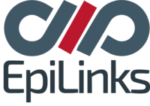Our ethical framework guides our professional practice and outlines the guiding principles of interactions with a wide variety of stakeholders
Ethics for public health projects
- Provided data must be of sufficient quality, including being timely and reliable
- EpiLinks’ work is conducted under the control of appropriate mechanisms and committees to ensure ethical surveillance
- Projects should be guided by transparent governmental priority-settings
- The values and concerns of communities and individuals should be taken into account during planning, implementation, and when using data specific to the community
- The identifiable data must be appropriately secured
- Authorship is decided according to international rules
WHO, 2017, Guidelines on ethical issues for public health surveillance
Partnership and country support
- Results must be communicated effectively to all relevant audiences in the countries
- Policy for data sharing must be stated in project’s agreement, in particular for country use
- EpiLinks staff members should not interfere with governments’ decisions and internal policies.
Who, 2017, Code of Ethics and Professional conduct
Private/public collaborations
- EpiLinks must ensure that all collaborative research, product development, and introduction activities meet the highest standards of safety, quality, and integrity.
- EpiLinks must ensure that proper reviews and approvals are obtained by institutional review boards.
- In all collaborations, the relationship between EpiLinks and the private-sector company must be clearly defined through an appropriate written document or agreement.
- EpiLinks must maintain a level of transparency in its collaborations with the private sector
- As a consultancy company providing technical and scientific support based on high-standard for scientific research and public health intervention, EpiLinks ensures dissemination of the results of its private-sector collaborations. EpiLinks also recognizes the importance of linking dissemination of results with appropriate protection of intellectual property
- In all collaborations with private-sector companies, EpiLinks must carefully assess the potential for both perceived and real conflicts of interest at both the institutional and individual staff member level. Proactive disclosure of EpiLinks’ relationships with private-sector companies is essential to avoiding conflict of interest issues.
PATH’s Guiding Principles for Private-Sector Collaboration
